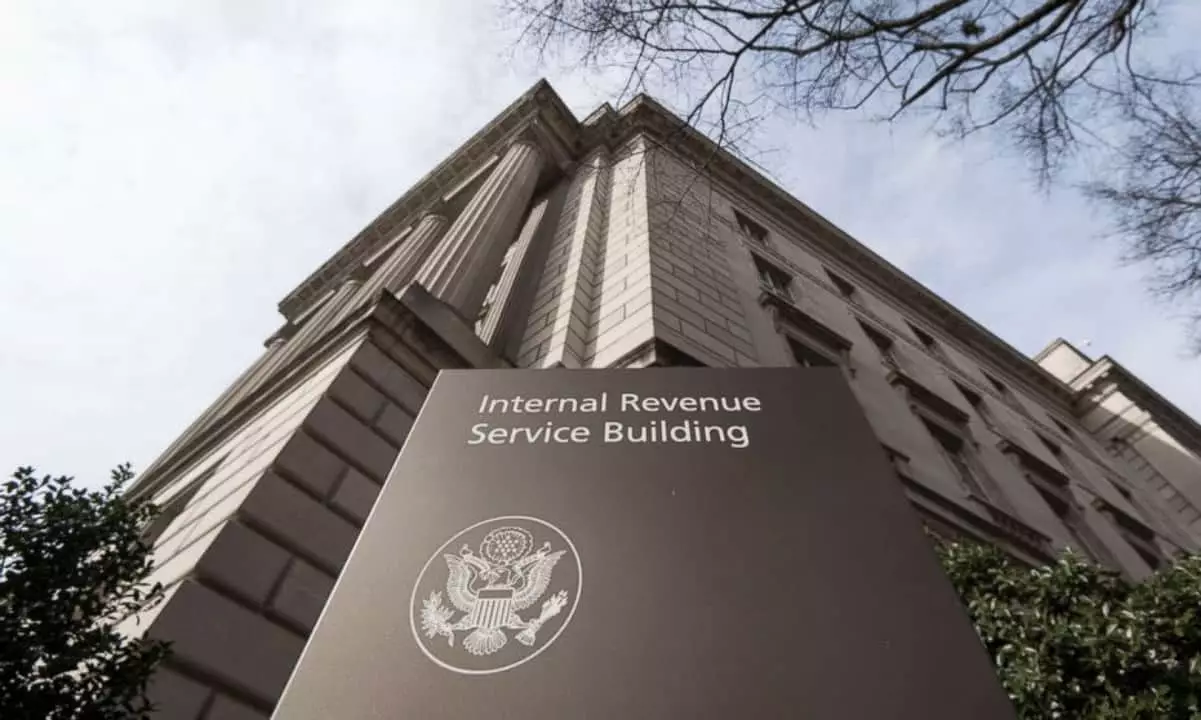The landscape of cryptocurrency taxation is set to undergo a consequential transformation starting in 2025. Individuals engaging in digital asset transactions through centralized exchanges, or CEXs, will now find themselves navigating a new realm of IRS reporting obligations. This initiative by the IRS signifies not just a procedural adjustment but also a pivotal moment in the governance of cryptocurrency investments and their taxation, potentially affecting countless investors across the United States.
Under the forthcoming regulatory framework, exchanges such as Coinbase and Gemini will be obligated to provide detailed transaction reports to the IRS. This means that for the first time, users operating through custodial accounts will have their transaction details automatically reported by the exchange. The introduction of the 1099-DA form is a key development in this ecosystem, as it outlines all purchases and sales of cryptocurrencies, ensuring that this information reaches both the taxpayer and the IRS by early 2026. Investors must be particularly vigilant regarding this documentation, as any oversight in reporting could lead to severe discrepancies that may attract unwarranted scrutiny from the tax authorities.
The critical change here is the shift from self-reporting to third-party verification. This means that the IRS will have its own records of transactions, making it more challenging for taxpayers to underreport their earnings or evade tax obligations. The implications of this shift are significant, considering the IRS’s increasingly aggressive stance toward ensuring compliance among cryptocurrency investors.
Challenges in Cost Basis Reporting
One notable aspect of the new regulations is the delay in requiring brokers to report cost basis information until the 2026 tax year. Cost basis refers to the original purchase price of a cryptocurrency, which is essential for accurately calculating taxable gains or losses when assets are sold. As Jessalyn Dean from Ledgible highlights, this postponement could hinder taxpayers’ precise determination of their taxable earnings, leading to potential inaccuracies on tax returns.
Accurate recordkeeping becomes critical here; without timely information from brokers on cost basis, investors may find themselves in precarious situations when filing their returns. The responsibility falls on individual investors to track their acquisition costs accurately to avoid tax-related pitfalls.
Notably, the reporting requirements differ for transactions conducted on decentralized exchanges like Uniswap and Sushiswap, which will not be subject to these third-party obligations until 2027. Moreover, these platforms will only report gross proceeds from transactions, bypassing the requirement to specify the cost basis. This highlights the distinct challenges associated with decentralized finance (DeFi) systems and suggests that regulatory frameworks are still catching up with the rapid evolution of financial technologies.
This drawn-out timeline for decentralized exchanges could create conflicts for users who straddle the worlds of both centralized and decentralized transactions. It underscores the complex nature of crypto assets and the technical hurdles in implementing comprehensive regulatory measures across different platforms.
In addition to changes for direct cryptocurrency transactions, the new regulations will also impact investors in Bitcoin exchange-traded funds (ETFs). ETF providers are likewise required to issue reporting forms such as the 1099-B or 1099-DA, capturing not just sales proceeds but also any taxable events resulting from internal fund management. This inclusion of tax-related implications from ETF trading serves to emphasize that the IRS is intent on maintaining oversight of all avenues through which cryptocurrency investments take place.
Investors in Bitcoin ETFs are advised to consult tax professionals, as the multifaceted nature of these funds can complicate tax liabilities. Internal fund activities can generate taxable events independent of the performance of the underlying assets, making it vital for investors to remain informed about potential tax ramifications.
The IRS’s new regulations arise as part of a broader push towards ensuring compliance amid increasing scrutiny in the cryptocurrency market. Just recently, the agency introduced automatic relief measures for users of centralized finance to help navigate these emerging tax obligations, indicating a recognition of the complexity involved in crypto-financial systems.
Taxpayers must now decide on the accounting methods they wish to employ with their respective brokers to avoid defaulting to the first-in, first-out (FIFO) approach, which could inadvertently inflate tax liabilities. This element of choice, while seemingly beneficial, also introduces another layer of complexity in managing tax obligations.
The evolving landscape of cryptocurrency taxation in the United States places new responsibilities on digital asset investors. As the IRS enforces more stringent reporting regulations, it is paramount for investors to adapt, remain informed, and seek professional guidance to navigate these challenging new requirements successfully. The new framework not only seeks to enhance compliance but also poses important questions about the future of crypto taxation as the market continues to expand and mature.


Leave a Reply